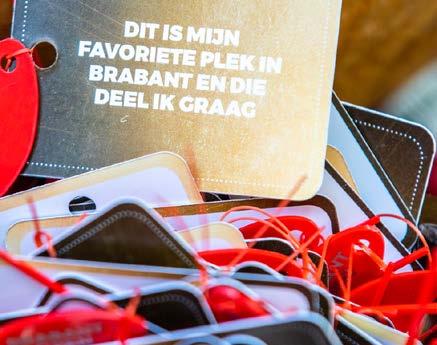
16 minute read
Personal & Social Needs
6. PERSONAL AND SOCIAL NEEDS
6.1 Dutch Manners 6.2 Culture & Society 6.3 Shopping 6.4 Pets 6.5 Religion 6.6 Special Events 6.7 Expat Networks & Social Clubs
6.1 Dutch manners
Communication:
Many foreigners can find the Dutch direct and abrupt. However, there is no intention to be rude. The Dutch say what they mean and speak their minds!
Addressing people: formal and informal
Dutch people begin to call people by their first name quickly. The Dutch do not use titles when talking to someone. In writing, state the title, only in an official letter. The only exception is the Dutch King and Queen who will always be addressed as His and Her Majesty!
Greeting friends: the 3 Dutch kisses
Friends and family used to kiss each other on the cheeks three times, every time they met. Of course this is no longer the case.
Dining out
When invited, the Dutch make it clear whether you are a guest and therefore do not need to pay. Otherwise, expect to ‘go Dutch’ and pay for your share, or to split the bill according to the number of diners. A waiter(ess) is beckoned by raising a hand, making eye-contact and calling ‘Sir’ or ‘Madam’.
Tipping
Everyone in the Netherlands receives a basic salary. In restaurants and cafés, give 5-10% of the total bill, if the service was good. Leaving some small change on a restaurant table is a common way of giving a tip to the serving staff. If you are not satisfied, do not give a tip at all! Tips are generally not expected in bars, but are not uncommon. Taxi drivers generally receive a 3-5% tip.
Going Dutch
Women in the Netherlands enjoy the same privileges as men. Enjoying lunch or dinner with a (male or female) friend will often end up in going Dutch (splitting the bill).
Making a telephone call
When a Dutch person answers the telephone, they will state their first and last name. The name is usually preceded by ‘met’, which means ‘you’re speaking with’. Do not make personal calls before 09:00 or after 22:00. On Sundays, do not call before 10:00 and avoid meal times (18:00–19:30).
Making friends
Many internationals find it hard to start making friends in a new country. But there are many opportunities to meet new people! For example: ● Because of their school activities and play dates, small children can make it easier for parents to get to know each other. ● Join a community group or club. Many neighborhoods have community centres where a lot of activities are organized for the neighborhood’s residents. This is a good way to get in touch with the Dutch. ● Learning some Dutch will help you in getting to know the
Dutch!
Socializing with neighbors
Neighbors can answer questions and help you with practical things. Introduce yourself to your neighbors by inviting them to your house for coffee or tea, or a glass of wine in the evening. In general, your neighbors will in turn invite you over to their house!
Let your neighbors know when you are having a party or renovation, or something else that may cause them any inconvenience. The Dutch value their peace and quiet, so they like to stick to a 23:00 rule: They can complain after 23:00!
-- Meilivia Angelicka, Indonesia
DINNER PARTIES If you are invited to a Dutch home for a dinner party, observe the following rules:
● Bring a small gift for the host/hostess. This can be a bottle of wine, flowers, chocolates, or something from your home country. ● Be on time. Arrive no more than 15 minutes late. Don’t be too early either because your host might not be ready! ● Wait until you are served or asked to serve yourself. ● Never start to drink immediately. The Dutch usually raise their glass and drink the first drink together. ● When you have finished eating, place your knife and fork side by side at the 15:15 position on your plate. ● When you have a business meeting or dinner, you do not have to bring anything, unless it is held at someone’s home. ● If you do not know what to wear, or if you do not know if and what you have to bring, just ask your host(ess)! You can also ask one of the other invitees for advice.
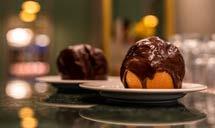
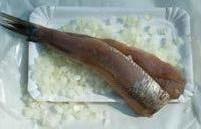
TYPICAL DUTCH FOOD ● Beschuit met muisjes are crackers with pink/blue and white balls on them called muisjes (mice). Eaten when a baby is born; blue for a boy and pink for a girl. ● Stamppot is a typical winter dish, made of mashed potatoes and vegetables, such as carrots and onions (hutspot), chopped green cabbage (boerenkool) or sauerkraut (zuurkool). Stamppot is eaten with rookworst (smoked sausage) and gravy. ● Erwtensoep (pea soup) is eaten when the weather is cold. It is a tradition to eat it after ice-skating! ● Asperges (asparagus) are a typical spring delicacy. The Dutch like to eat them with ham, eggs and a hollandaise (melted butter). ● Hagelslag is a Dutch product, used abroad only as cake decoration, but the Dutch eat it on sandwiches! They come in many flavors. ● Kroket is a crispy crust that is filled with meat. The Dutch eat it with broodje kroket (bread) or at dinner with french fries. ● Bitterballen are a smaller round version of the kroket, and are usually eaten as a party snack. ● Stroopwafels are two thin waffles with syrup between them that tastes like caramel. ● Haring is eaten raw! On markets and in shopping malls you will find stands selling haring with freshly chopped onions. ● The consumption of dairy products is extremely high, which according to some scientists accounts for the high average height of Dutch men and women!
6.2 Culture and Society
● Population is 17.4 million. ● Dutch and Frisian (spoken in Friesland) are the official languages of the Netherlands. Most Dutch people speak good
English. ● The majority of the population is happy with their quality of life, and the social welfare system is recognised internationally as being excellent.
Climate
The average temperature and rain fall in Brabant, throughout the year (in Celcius).
SPRING
10
SUMMER
23
AUTUMN
10
WINTER
5
Dutch food
The Dutch have always been internationally orientated, and nowadays you will find meals from all over the world on Dutch dinner tables, especially among younger people.
The Dutch generally eat three meals a day. Dinner (around 18:00) is the main meal for most people, but some rural families and older people retain the tradition of eating the main meal at lunch. For them, the evening meal is light and often consists of bread, cold cuts, cheese, and a salad.
Value added tax (BTW)
The Dutch standard VAT rate is 21%, and applies to most goods and services. This rate is average in comparison to the rate in other EU member states.
Beverages
A 9% tax rate applies to some items, including food and beverages (excluding alcoholic beverages), water, pharmaceutical products and medical aids for persons and animals, books and magazines, passenger transport, hotel accommodation, cinemas, and zoos. However, the VAT rate for sporting events, theatre visits and musical performances is 19%. A 0% rate applies to exports and intra-community (EU) supplies.
Post offices
There are no longer stand alone post offices in the Netherlands. Instead, postal services are offered inside of certain grocery stores and bookstores.
To mail a letter, find the orange mailboxes, which can be found on some streets. There are two slots in mailboxes: for local mail,
and for the rest of the country and the world. Mailboxes are emptied Monday-Friday after 18:00. Mail within the Netherlands will usually be delivered the next day. Packages can also be delivered to locations, such as grocery stores and other stores.
There are three different types of postage available: 1. The Netherlands: Within the Netherlands 2. Europe: Outside of the Netherlands, but within Europe 3. World: Outside of Europe
There are special decemberzegels (December stamps) to send Christmas and New Year’s cards at a reduced rate. Use two December stamps to send a card anywhere outside of the Netherlands! Be aware that these stamps are valid during a specific period in November and the beginning of January. For more information, go to: www.post.nl.
To prevent missing a delivery, it is sometimes possible to choose an alternate delivery location, such as a supermarket, as well as a delivery time. This depends on the sender and can be done via an app.
6.3 Shopping
Eindhoven is known throughout the region as a great place to shop. The Heuvel Galerie, the Piazza Centre, and the de Bijenkorf department store are particularly popular. There are plenty of topend fashion boutiques in the city centre, as well as a range of ethnic and health food stores for those looking for unusual ingredients.
In Tilburg, Heuvelstraat (the main shopping street) has a varied range of shops and boutiques. The side streets contain a veritable treasure trove of antique and second-hand dealers, galleries and unique specialist shops. Heuvelstraat leads onto Pieter Vreedeplein, a shopping and entertainment centre in the heart of the city.
In addition to this ultramodern square, a new pedestrian area is also being developed. Charming little shops and historical city streets make this a wonderful location for a stroll. There are also large retail centres in Reeshof (Heyhoef), Tilburg West (Westermarkt) and Tilburg Noord (Wagnerplein).
Weekly markets are set up in different locations around the region, and sell a wide range of food and other items, at lower prices. Markets are popular and are where to head if you want to mix with the locals!
● Opening hours vary slightly. Some shops are open from 09:30 to 18:00, Monday to Saturday. More open later (usually at 11:00 or 13:00) on Mondays, and close at 17:00 on Saturday. ● Shops in larger towns stay open (until 21:00) one evening each week, for koopavond (shopping evening). ● Many shops now open on one Sunday each month for koopzondag (shopping Sunday). Some shops are open every
Sunday.
● In Eindhoven, most stores are open in the city centre every Sunday from 10:00-17:00. ● Supermarkets are usually open Monday to Saturday until 20:00 or 22:00, and until 18:00 on Sundays.
6.4 Pets
Pets are popular in the Netherlands! You will see people walking their dogs around town, and also taking them into stores! The most common pets in Dutch homes are dogs, cats, birds, fish, and rabbits.
Rules regarding dogs
Dogs are only allowed to be off of a leash at a designated hondenlosloopterreinen. Dog owners who do not pick up after their dog can be fined.
Dog Tax
Dog owners must pay a dog tax. The amount of tax depends on which city you live and how many dogs you have.
Veterinarians
There are many dierenartsen (veterinarians) in the Netherlands.
Animal food
Food for animals can be bought at dierenwinkels (pet stores), which also sell treats, games, toys, beds, and other things for pets. Pet food and treats can also be found at most supermarkets.
Finding a pet
If you find a lost or abandoned pet, you can take it to an asiel (animal shelter). The people working there will try to trace the original owner or find a new one. If you want to buy a pet, pet stores sell small animals, such as rabbits and guinea pigs. For cats and dogs, contact the local animal shelter or an official breeder.
Ben
Bruno
Olly Guus Tyrell
De dierenambulances Brabant Zuid-Oost (animal ambulances for Southeast Brabant, including Eindhoven) transports sick, injured and lost animals, to a near by shelter, veterinarian or animal hospital. If you see an animal that needs emergency care in Eindhoven, call them at 0900 - 112 0000. They are available 24 hours a day, seven days a week.
Ik zoek baas!
is a website where you can find pets who are up for adoption! www.ikzoekbaas.nl
Dog obedience school
There is a number of hondenscholen (dog obedience schools) and hondenuitlaatservices (dog walking services) throughout the region.
Boarding kennels
When you go on holiday, you can leave your pet with a neighbors, a friend, or at a dierenpension (boarding kennels).
Pepper
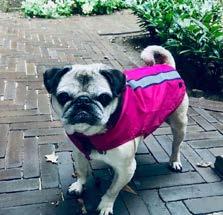
-- Olivia van den Broek-Neri Harvey
Harrington
Meneer Frits
Max
6.5 Religion
The Netherlands is a tolerant nation, and every individual has the right to practice their religion or conviction. Traditionally, Brabant was strongly Roman Catholic, but during the second part of 20th century, a rapid secularization took place in the province, as it did in the rest of the country. Although there has been a big decrease in the number of people who attend church, the traditions are still part of the culture. For instance, Carnaval, which takes place five days before Ash Wednesday. Today, there is a growth in the number of residents who practice Islam and other religions. The following serve the English-speaking community. Of course there are also services in Dutch, which also welcome internationals!
Protestant Trinity Church Eindhoven (TCE) is an English-speaking, international church that is part of the Anglican (Church of England) Diocese in Europe. De Pracht 1, Waalre ● www.trinitychurcheindhoven.org
International Baptist Church (IBC Eindhoven) is a multi-denominational congregation. Het Lichtpunt, Geestakker 546, Eindhoven ● www.ibceindhoven.nl
Victory Outreach Eindhoven (Christian-Pentecostal) Hoogstraat 384, Eindhoven ● victoryoutreacheindhoven@gmail.com A strong presence of the Holy Spirit and a welcoming international communtiy gather in a place where you can feel at home.
Polish Church, St. Maximiliaan Kolbe parochie: St. Laurentiuskerk, Ginnekenweg 333, Breda. ● +31 (0)76 565 5433; Mariakerk Mariaplein 1, Breda. ● +31 (0)76 565 2260
Victory Bible Church International, Tweeschaar 125, Breda. ● +31 (0)6 261 140 94
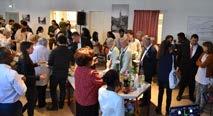

“We are an international Catholic community made up of working people, students and other expats and locals in Eindhoven. We welcome anyone who wants to join us and feel part of a big family who strongly believes in showing love and respect to each other. We’re always happy to welcome guests and new members to our community. We meet to celebrate the Holy Mass in English every Sunday at 12:30.” ● www.englishmasseindhoven.nl English Mass Eindhoven
City Life Church Breda, Nassausingel 26, Breda ● www.clcbreda.nl
Jefta Intercultural Church, location Graaf Engelbecht, Ganzerik 3, Breda. ● kantoor@jefta.org
CEC, Chinese Christian Evangelical Church Seminary International. Goeseelsstraat 30, 4817 MV Breda. ● www.emsionline.org ● emsibreda@gmail.com
International English Mass in St. Michael Church, Hooghout 67 in Breda. Every Sunday at 13.00 ● info@augustinusparochiebreda.nl
Winners Church International Breda, Steendorpstraat 2, Breda. ● +31 (0)6-50241151
Muslim Fatih moskee Eindhoven, Willemstraat 67, Eindhoven ● +31 (0)40-245 1944 ● www.eindhovenfatihmoskee.nl
Anwar-E-Madinah Kastelenplein 1691, Eindhoven ● +31 (0)40 251 3089 ● www.anwar-e-madinah.nl
Parochie Christus Koning welcomes the International Catholic Community living in Veldhoven and Meerhoven! Kapelstraat-Zuid 18, Veldhoven ● www.christuskoning.nl
pchristuskoning
City Life Church Tilburg offers an inter-denominational Christian community who speak English and Dutch. Services are on Sunday at 10:00 and 12:00 at Club Smederij (spoorzone). ● info@clctilburg.nl ● www.clctilburg.nl @clctilburg
Stadskerk040 is a modern Christian fellowship in Eindhoven whose services take place in Eindhoven’s landmark: Evoluon. On Sundays, the service is translated into English. ● stadskerk040.nl/en
6.6 Special Events
The region hosts many annual events. Among the most popular events is Carnaval (held the five days before Lent every year) when the entire region lets its hair down, dresses up in crazy costumes, and celebrates in a festival of music and color with events for all ages!
King’s Day
Koningsdag (King's Day) is on 27 April and celebrates King WillemAlexander’s birthday. On this day, the country turns orange as everyone wears orange clothing! A tradition is that the royal family visits someplace in the Netherlands and participates in local activities. In 2021, the royal family will visit Maastricht. There are also many festivites throughout the country, as well as flea markets in the city centres.
On King's Day, make sure that you wear something (or everything) orange!

● Breda Internationals
is a community group for internationals living in and around Breda.
This group is designed for expats who come to work and live in the city of Breda. We also welcome international students, as well as Dutch international-minded people. With a great amount of internationals coming from all over the place to our city, we want to make sure everyone feels welcome and at home. This group is there to support you with finding information, events and friends in the city.
We organize diverse events for families and professionals, and also create social events, such as Meet & Greets and we combine this with existing events in the city, to get you closer to our local city lifestyle. Also, to help you on the way to understand the Dutch system, we create workshops on for instance Taxation, Housing, Volunteering, etc. Based on your needs we will adapt our program every year!

Please take the initiative and use this platform to ask any type of questions, because you are not alone and many other internationals are there to help you. Or give relevant information, tips and events that you have and share them with us on our platform.
Find us here:
Breda Internationals E-mail: breda.international@breda.nl
Get in touch with us and we will add you to our WhatsApp group!
Are you being discriminated against?
Every person in the Netherlands must be treated equally in equal circumstances. That is the first sentence of the first article of the Dutch constitution. Discrimination on the grounds of religion, belief, political opinion, race, gender or any other ground whatsoever is not permitted. If you are a victim of discrimination or have witnessed to discrimination you can turn to RADAR for help.
If, for instance, you are refused an apartment because you do not have the Dutch nationality, or if you experience problems with your employer because of your pregnancy, you can ask RADAR for help. You can also file a complaint at RADAR when you are refused entry to a club and you suspect this has to do with the colour of your skin.
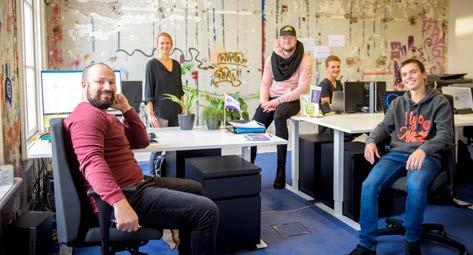
Another example where RADAR can help is when a shop or public service is not accessible for people with a disability. RADAR’s specialised employees will give you personal advice. We can mediate between you and, for instance, your employer or landlord. We can also assist you in taking legal steps. RADAR’s support is free of charge.
RADAR is an independent antidiscrimination service that operates in more than 60 municipalities in the Netherlands. RADAR is committed to supporting anyone who experiences discrimination or unequal treatment in whatever way. RADAR focuses on equal treatment by means of research, policy advice and workshops and training for professionals.
RADAR has offices in Eindhoven, Tilburg, ’s-Hertogenbosch and Rotterdam. You can contact us +31 (0)40 249 1444, by info@radar.nl or visit www.radar.nl.
“Biking around is one of the most exciting things Eindhoven has to offer and one of my favorite activities in the region. You can visit another city, enjoying the beautiful paths on the way. I suggest going to Nuenen: the trip is adorable and visiting Vincentre and Van Gogh Village is totally worth it.”
-- Leticia Batista, Porto Alegre, Brazil


